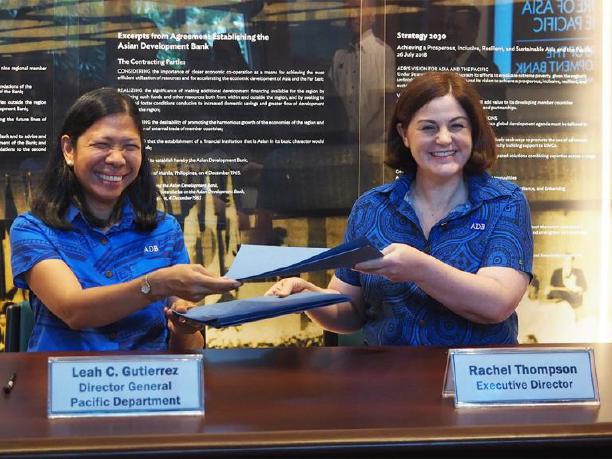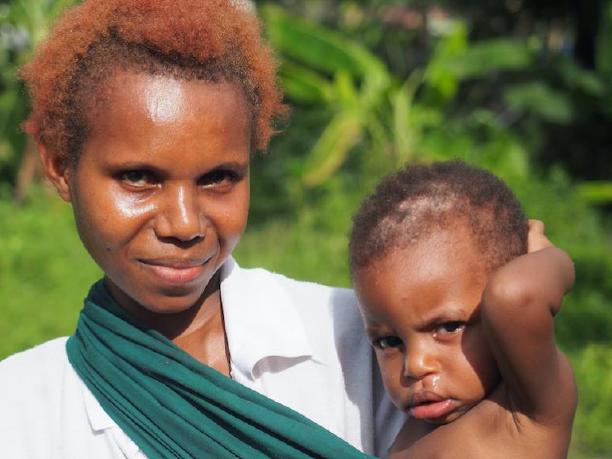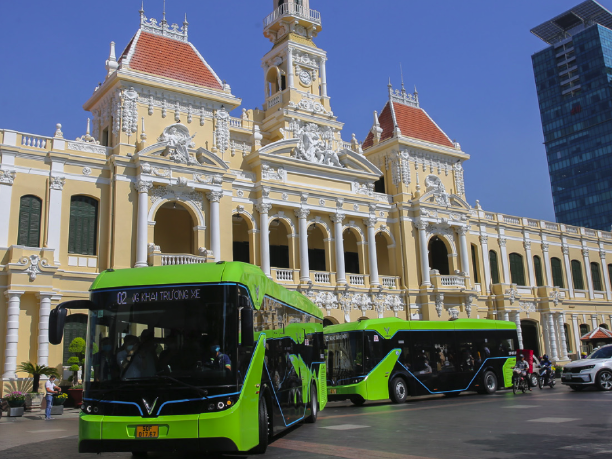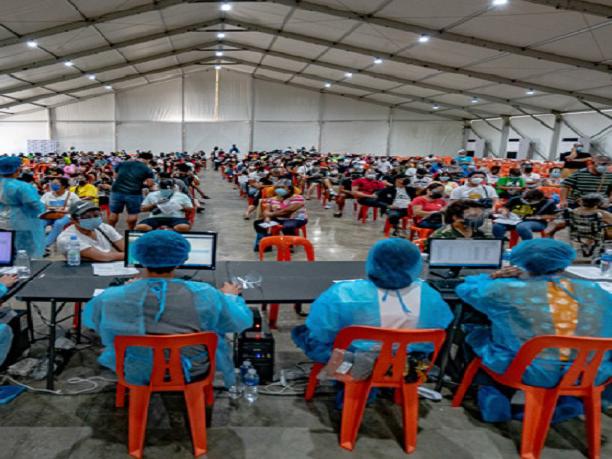Australia
Listen to the article
Cumulative
- Project-Specific Cofinancing $2.4 billion
- Contributions Committed to Trust Funds $262.1 million
2023
- Project-Specific Cofinancing $66.8 million
- Trust Funds Contribution $630,000
Partnership Framework Arrangement
Signing Date 9 July 2021
Completion Date 31 December 2025
Australia aims most of its overseas development assistance at the Indo-Pacific region and provides substantial aid to the Pacific island countries. The Department of Foreign Affairs and Trade (DFAT) channels funds for the development work in infrastructure; trade facilitation and international competitiveness; agriculture, fisheries, and water; governance (policies, institutions, and functioning economies); education; health; building resilience (humanitarian assistance, disaster risk reduction, and social protection); climate change; and gender equality and empowering women and girls. The Australian Infrastructure Financing Facility for the Pacific enables quality infrastructure across the Pacific and Timor-Leste by partnering with governments and the private sector to provide financing for transformational energy, water, transport, telecommunications, and other infrastructure.
In August 2023, Australia launched its new International Development Policy. It sets the long-term direction for Australia’s development program as part of the country’s overarching objectives on regional security and prosperity. It further outlines the important role of development financing, partnerships, international laws and norms, and statecraft. The policy is underpinned by a new performance and delivery framework to drive key reforms and improve the transparency and accountability of Australia’s aid spending. At the same time, the government released the Development Finance Review conducted by DFAT. As recommended by the review, the government established the Australian Development Investments fund to provide up to A$250 million as a catalyst for private impact investment in the Indo-Pacific region.
In September 2023, Australia also launched its Southeast Asia Economic Strategy to 2040. It focuses on increasing two-way trade and investment and unlocking private sector investment. Australia’s A$1.2 billion development cooperation program with Southeast Asia engages with governments to improve the policy and regulatory settings needed to grow trade and investment. One recommendation is to explore working with multilateral development banks to support the development of more resilient long-term debt markets.
Australia’s 8th National Communication on Climate Change indicates the country’s aim to display climate leadership. The country indicated its intent to reengage actively in international climate discussions and proposed to host a United Nations climate change conference in partnership with the Pacific in 2026. Australia also joined the Forest and Climate Leaders’ Partnership, the Global Methane Pledge, and the Green Shipping Challenge.
Highlights of ADB–Australia Engagement in 2023:
Sovereign Cofinancing. In 2023, Australia committed $66.8 million in project-specific cofinancing, of which $59.3 million is a grant and $7.5 million is technical assistance (TA). Australia committed $21.6 million to help Papua New Guinea achieve a more sustainable and efficient health care system. The country also provided a $20 million grant to support Tonga in upgrading cargo wharves in the Nuku’alofa Port and improving the port’s capacity. Additionally, another grant of $15 million was given to help Tuvalu overcome domestic maritime connectivity constraints.
Nonsovereign Cofinancing. The Trade and Supply Chain Finance Program (TSCFP) supported over 1,660 transactions valued at $2 billion with banks domiciled in Australia from inception to December 2023. During the same period, the TSCFP supported over 1,320 Australian exports and/or imports valued at $1.3 billion. In 2023 alone, the TSCFP supported 49 transactions valued at $56.4 million with banks domiciled in Australia and supported 121 Australian exports and/or imports valued at $158 million. Exports and/or imports were mainly to/from Viet Nam, Bangladesh, and Sri Lanka. Underlying goods involved mostly food and agriculture-related goods, raw and non-energy commodities, as well as textiles and apparel.
Australia has also been supportive of ADB’s TSCFP and provided A$8.5 million ($6.3 million) to fund TSCFP expansion to the Pacific and other initiatives.
Trust Funds. In June 2023, Australia committed an additional A$1 million (around $630,900) to the ASEAN Australia Smart Cities Trust Fund, established in 2019 and one of Australia’s several single-partner trust funds administered by ADB. It adopts an operational focus on building livable cities that are green, competitive, inclusive, and resilient.
Special Funds. Australia is a founding member of ADB and has committed a total of $3.1 billion to special funds since 1966. Of this commitment, $2.9 billion has gone to the Asian Development Fund (ADF). The ADF provides grants to ADB’s low-income, developing member countries (DMCs) to help reduce poverty and improve quality of life.
Knowledge. In March 2023, a workshop introducing the wetland managers of DMCs to ecosystem services concepts, available tools, and practical examples was held at the 11th Meeting of the Parties for the East Asian–Australasian Flyway Partnership in Brisbane, Australia.
In June 2023, the ADB Institute, Australian Centre for International Agricultural Research, and Queensland University of Technology co-hosted a workshop to build capacity on policy research interface for agriculture and rural economic transformation in South Asia.
Active Trust Funds
Active trust funds are those a) with ongoing projects; or b) with no active projects but have remaining funds.
- ASEAN Australia Smart Cities Trust Fund
- Asia Pacific Project Preparation Facility
- Australian Climate Finance Partnership
- Clean Energy Fund
- Cooperation Fund for Regional Trade and Financial Security Initiative
- Regional Malaria and Other Communicable Disease Threats Trust Fund
- Water Innovation Trust Fund (previously Water Financing Partnership Facility [Multi-donor Trust Fund])
News
24 Nov 2023
ADB, Kiribati Sign $5 Million Grant to Accelerate Gender, Other Reforms
The $5 million grant agreement to help the Pacific island nation expedite reforms to aid its recovery from the COVID-19 pandemic.
28 Sep 2023
Australia Supports ADB's Universal Health Coverage Project in PNG
Australia supports the delivery of affordable and high-quality health services in Papua New Guinea.
- ADB, PNG Sign $66 Million to Boost Technical and Vocational Education and Skills Training 14 Dec 2022
- ADB, Solomon Islands Sign $10 Million Loan and Grant to Boost COVID-19 Recovery 13 Dec 2022
- ADB Approves $250 Million Loan to Boost the Performance of PNG’s SOEs 5 Dec 2022
- ADB, VPB Sign $500 Million Social Loan Package to Expand Access to Finance for Women-Owned SMEs in Viet Nam 11 Nov 2022
- ADB Leads $135 Million Climate Financing Package to Support Electric Mobility in Viet Nam 22 Oct 2022





